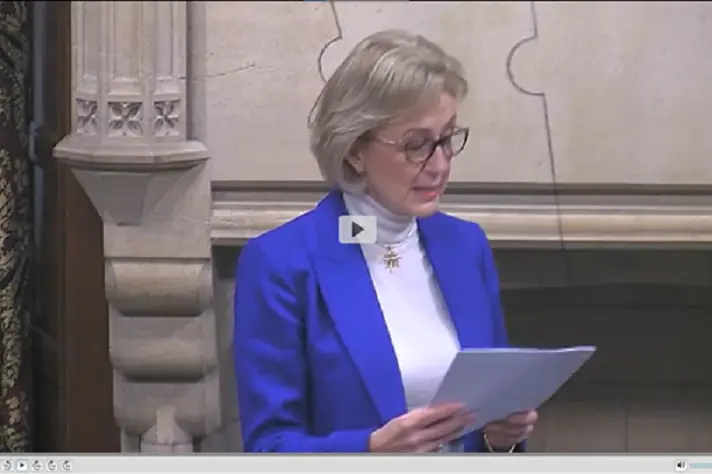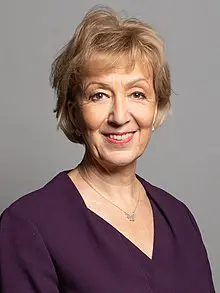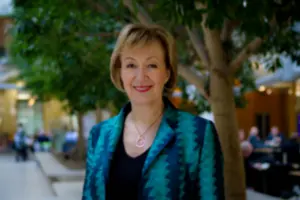Today’s welcomed debate in Westminster Hall on the “Provision of healthcare support services in the period between conception and age two”, brought together a united voice of support for investment in the earliest years of life which crossed usual party divisions, based on the indisputable evidence that the first 1,001 days are the most crucial period of human development.
In her opening remarks, Rt Hon Andrea Leadsom MP explained the importance of today’s debate which “Takes place against the backdrop of such a disruptive and damaging year. This year, as ever, it is the very youngest, the very oldest and the most vulnerable in our society who suffer when times are tough.” The vital role of health visitors and their leadership for prevention and early intervention were mentioned on many occasions throughout the debate. Special tribute was paid to Cheryll Adams and the work of the Institute of Health Visiting in championing both of these causes.

Rt Hon Andrea Leadsom MP opens debate on the Provision of healthcare support services in the period between conception and age two
During the debate, Members from across the House brought challenge to the Government with a consensus that cutting the public health grant was the falsest of false economies during times of austerity. The short-sightedness of these measures were summed up in the question, “I’m not sure what the Government thought they were going to save?” and with a wealth of evidence shared on the spiralling costs of late intervention to the whole of society.
In her response, the Minister Jo Churchill MP spoke publicly about the crucial role of health visitors, and midwives stating:
“a good health visitor can change a life, when it comes to moving on. An excellent midwife changed my journey, when I was struggling to feed my children for the first 10 days. Everyone says that those things are easy, but there is nothing easy about it, but after managing to get support people, hopefully, really feel they can fly. That is why it is vital”.
The Minister concluded her remarks by reiterating the Government’s commitment to the principle that:
“Prevention is better than cure. We want to identify and treat problems from the earliest stage and help parents to care for their children, change and improve behaviours, and protect against preventable diseases. We know that if parents and babies are well supported in the vital period from conception to age two, they are set up for a lifetime of better mental and physical health.”
At the Institute of Health Visiting, we would like to extend our sincere thanks to all the Parliamentarians who are championing the cause of babies and young children, and the health visiting service intended to provide a vital “safety-net” for all children. We particularly thank Rt Hon Andrea Leadsom MP for calling the debate and Tim Loughton MP who was bestowed a new honorary title today as the “Member for health visiting” – we thank them both for their tireless support.
It does feel like the tide is turning for babies and young children – we now await with renewed optimism the outcome of the Early Years Healthy Development review when it reports its findings and action from the Government to make the recommendations a reality.





